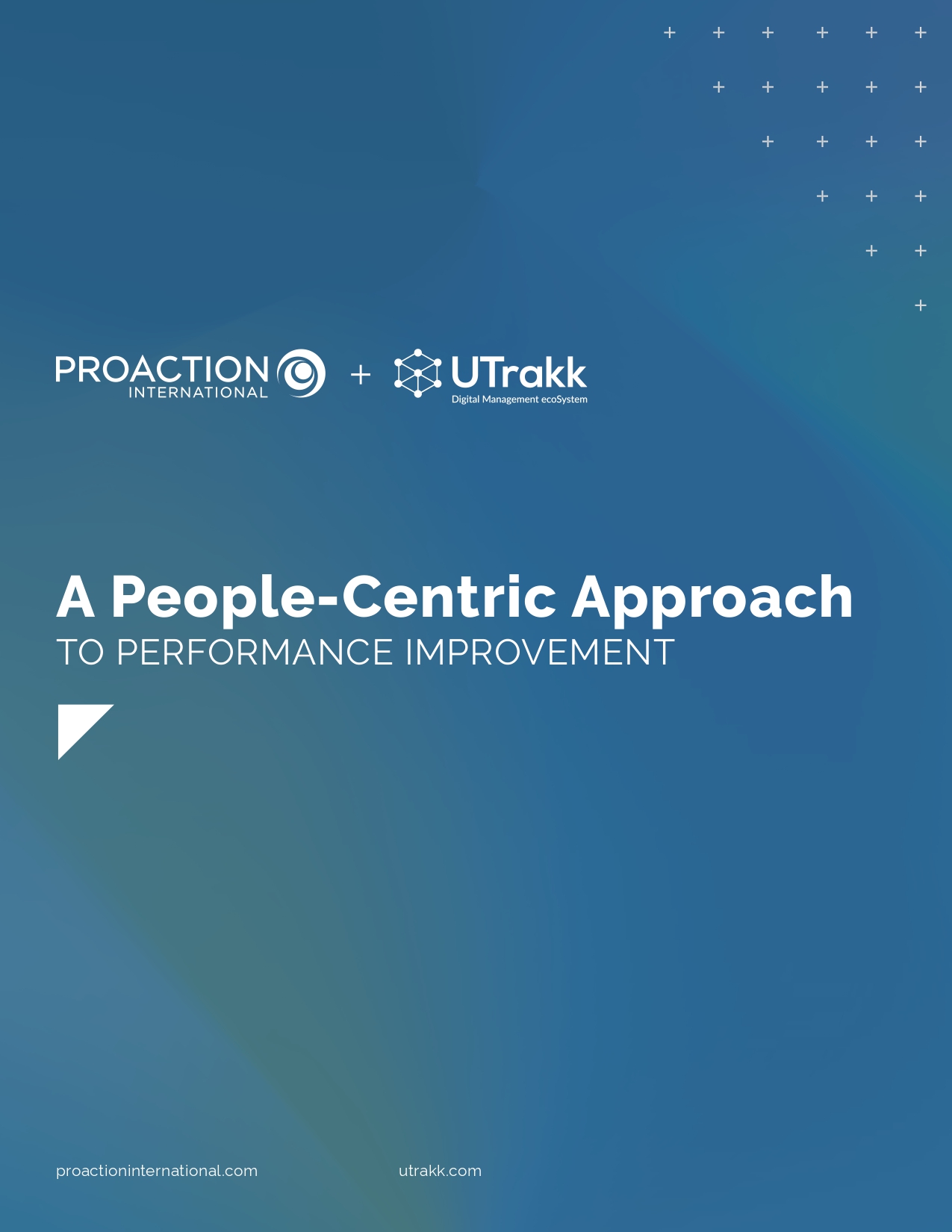What is operational excellence?
Operational excellence is an operations management philosophy based on three fundamental pillars:
-
Continuous process improvement
-
Creating customer value
-
Active employee involvement
IBM describes it as an organizational culture in which management and employees are invested in the company's results and are empowered to implement change. As for Kevin J. Dugan, founder of The Institute for Operational Excellence, he defines it as the stage where employees can identify the customer value chain and autonomously correct it in the event of a disruption or interruption.
In other words, in a company driven by operational excellence, everyone understands their role in the value chain and has the tools and authority to take meaningful action to improve it – without waiting for instructions from above. This autonomy thrives in a culture where leadership, discipline, and problem-solving are embedded in everyday routines.
Why is operational excellence important?
Because operational excellence focuses on improving systems and processes, it has a cross-functional impact and directly supports the company’s business strategy, regardless of its industry (healthcare, manufacturing, construction, technology, etc.) or size.
An organization committed to this approach seeks to eliminate waste, streamline operations, improve efficiency, and strengthen team agility. It adopts Lean Manufacturing principles, focusing on minimizing waste and identifying inefficiencies such as overproduction, excess inventory, and waiting times. Here are the top benefits of operational excellence:
Improved operational performance
-
Cost savings due to reduced operating costs
-
Optimized resource utilization
-
Improved process efficiency
-
Rapid detection of problems and anomalies
Strengthened organizational agility
-
Leaner, more predictable, and scalable operations
-
Increased adaptability to unforeseen events or market changes
Empowered and engaged teams
-
Employee empowerment leading to a proactive and accountable workforce
-
Improved teamwork and cross-functional collaboration
-
Facilitated problem-solving
-
Increased well-being, motivation, and productivity
Increased customer value and customer satisfaction
-
Improved product or service quality
-
Better customer experience and higher customer satisfaction
-
Greater responsiveness to expectations
Sustainable competitive advantage
-
Culture of continuous improvement and innovation
-
Differentiation through rigor, reliability, and responsiveness
-
Foundation for long-term business success
The 10 core principles of operational excellence
Developed by the prestigious Shingo Institute, the Shingo model identifies ten core principles of operational excellence applied in the world's most successful companies. These pillars serve as a guide to help organizations reach operational excellence.

Respect every individual
Everyone has unique potential and deserves to be considered a key player in the company’s performance. This means actively involving employees in improvement initiatives, valuing their ideas, promoting their health and well-being, and supporting their professional development.
Respect also extends to customers, suppliers, and partners.
Lead with humility
It’s essential to recognize that improvement is both necessary and possible. Managerial humility is a strength. It allows managers to realize that they can learn from everyone, regardless of their position. Humble leadership encourages active listening, openness to constructive criticism, and the creation of a work environment that fosters shared progress.
Seek perfection
Perfection may be out of reach, but the pursuit of excellence fosters a culture of rigor and high performance. Organizations that strive for excellence are never satisfied with the status quo – they are driven by a constant desire to do better and achieve more.
Embrace scientific thinking
Scientific thinking and practices – experimentation, data collection, root cause analysis, and incremental adjustments – allow to innovate without fear of failure. Companies move forward by testing, measuring, and learning.
Focus on processes
Results depend on the quality of processes. When a problem arises, the root cause should be sought in working methods. Improving business processes means sustainably improving operational performance.
Ensure quality at the source
Quality shouldn’t be controlled only at the end of the supply chain – it's built at every stage of the manufacturing process. Detecting and correcting errors early, before they have a major impact, helps prevent them from spreading and enhances operational reliability.
Flow and pull value
This means ensuring that daily activities are carried out with rigor, consistency, and efficiency. By responding precisely to customer demand, without delays, disruptions, or waste, organizations can create long-term value. Flawless execution is a key driver of overall performance.
Think systemically
An organization is a system of complex interactions. Local actions often have ripple effects. Adopting systemic thinking means understanding the interdependencies between operations and optimizing the organization as a whole, rather than improving each department separately.
Embody vision and purpose
All employees must align with the organization's vision, strategic and operational objectives, and priorities. When every level of the organization is aligned, everyone can work together more effectively and contribute in a coordinated way to achieving results.
Create value for customers
Customers are the ultimate judges of value. That’s why it's essential to understand customer needs and expectations, respond to them accurately and consistently, and continually improve their experience. A customer-centric culture ensures that these priorities shape every action and decision.
Methodologies and tools to support operational excellence
Many operational excellence methodologies and tools can be used to achieve operational excellence, most of which fall under Lean, Six Sigma, and Kaizen.
Lean Manufacturing
Lean Manufacturing is a Japanese management methodology that maximizes customer value while eliminating waste. Inspired by the Toyota Production System, it’s based on simple but powerful principles: continuous improvement, pull production, standardization, team involvement, and customer focus.
The goal of Lean Manufacturing is to produce only what’s needed, at the right time, with minimum resources, while ensuring quality.
A combination of Lean tools and methodologies can be used to achieve this objective:
-
5S, a workplace organization methodology based on five Japanese words: Seiri (Sort), Seiton (Set in Order), Seiso (Shine), Seiketsu (Standardize), and Shitsuke (Sustain). 5S promotes cleanliness, safety, order, and operational efficiency in daily activities.
-
Kanban is a visual management system for controlling and regulating production or service flows. It signals replenishment needs or task progress to avoid waste related to overproduction and stockouts.
-
Leader Standard Work, an essential practice in Lean Management, creates a consistent and organized framework helping leaders effectively manage people, business processes, and performance. It promotes stability and operational discipline.
-
Value Stream Mapping (VSM) is a process mapping model used to analyze all workflow steps – from start to delivery – to identify bottlenecks, waste, and improvement opportunities.
-
SMED (Single-Minute Exchange of Dies) is a rapid tool change methodology that reduces setup and machine downtime. It increases flexibility and reduces losses due to downtime.
-
Poka-Yoke is an error prevention system that generally uses simple or visual devices to prevent defects upstream and improve quality at the source.
-
Andon is a visual representation or audible device that instantly signals a problem on a production line. It promotes quick responses from all team members to avoid deviations.
Six Sigma
Six Sigma is a process improvement methodology focused on reducing defects, controlling variability, and ensuring customer satisfaction.
This business strategy is structured around two methodologies:
-
DMAIC is the most common tool. It’s used to optimize an existing process following five key steps – Define, Measure, Analyze, Improve, and Control.
-
DMADV is a methodology for developing new processes. It also follows five steps – Define, Measure, Analyze, Design, and Verify.
Combined with Lean principles, Six Sigma is a key strategy for structuring improvement initiatives, maximizing quality, and strengthening operational efficiency.
Kaizen
Kaizen, a Japanese word for "continuous improvement," is a continuous improvement methodology that requires active participation of employees. It’s based on the idea that incremental improvements can generate significant long-term results. Employees at all levels are encouraged to identify improvement initiatives and contribute to implementing them.
Key Kaizen tools include:
-
PDCA (Plan-Do-Check-Act) to structure improvement cycles in an iterative, rigorous, and factual manner.
-
Visual management to provide visibility on issues, track progress, and encourage employee engagement.
How to achieve operational excellence
While there is no single, universal path, there are key steps to ensure successful implementation of excellence strategies and practices in your business operations, ultimately leading to organizational excellence.

1. Assess the state of your organization
Before determining the way to go, you must understand the company's current situation and objectively assess its operational maturity level. This honest assessment can cover several areas:
-
Process performance
-
Integration of new technologies
-
Consistent execution of tasks by all employees
2. Define a clear vision and measurable objectives
Any change within an organization starts with a shared vision that aligns with your business needs and goals. This vision must then be broken down into clear, specific objectives. These objectives help define operational performance indicators, allowing you to measure results, track progress, and maintain focus on your priorities.
3. Involve employees
The success of your operational excellence endeavor depends on employee buy-in and participation. To foster commitment from team members, they must be included and informed of the expected benefits for the organization and themselves.
Strong engagement must be present at every level of the organization – from executives to frontline managers and floor teams.
4. Ensure continuous improvement
Operational excellence strives to create a company culture where change is seen as an opportunity rather than a constraint. This requires the ability to challenge oneself, focus on continuously improving processes, practice open communication, and foster employee engagement to ensure the company stays ahead of its competitors.
5. Set the right key performance indicators
Relevant data must be captured to measure progress and efficiently manage operational performance. Examples of insightful manufacturing KPIs include Overall Equipment Effectiveness (OEE), customer satisfaction, cycle time, production rate, scrap rate, etc.
These key metrics must be aligned with your organization's business needs, monitored regularly, and shared with employees to foster motivation and informed decisions.
Turn operational excellence into a daily habit
Operational excellence requires organizations to develop a collective mindset toward progress, agility, and discipline. This ongoing journey involves shaping a strong organizational culture that supports continuous learning and operational discipline at every level.
Embracing this culture often requires changing habits, reviewing specific business processes, and accepting temporary discomfort in favor of lasting gains. It also requires strong leadership engagement, and open and regular communication throughout the transformation.
It’s by engaging teams, recognizing successes, and cultivating continuous learning that operational excellence can become a way of life.









